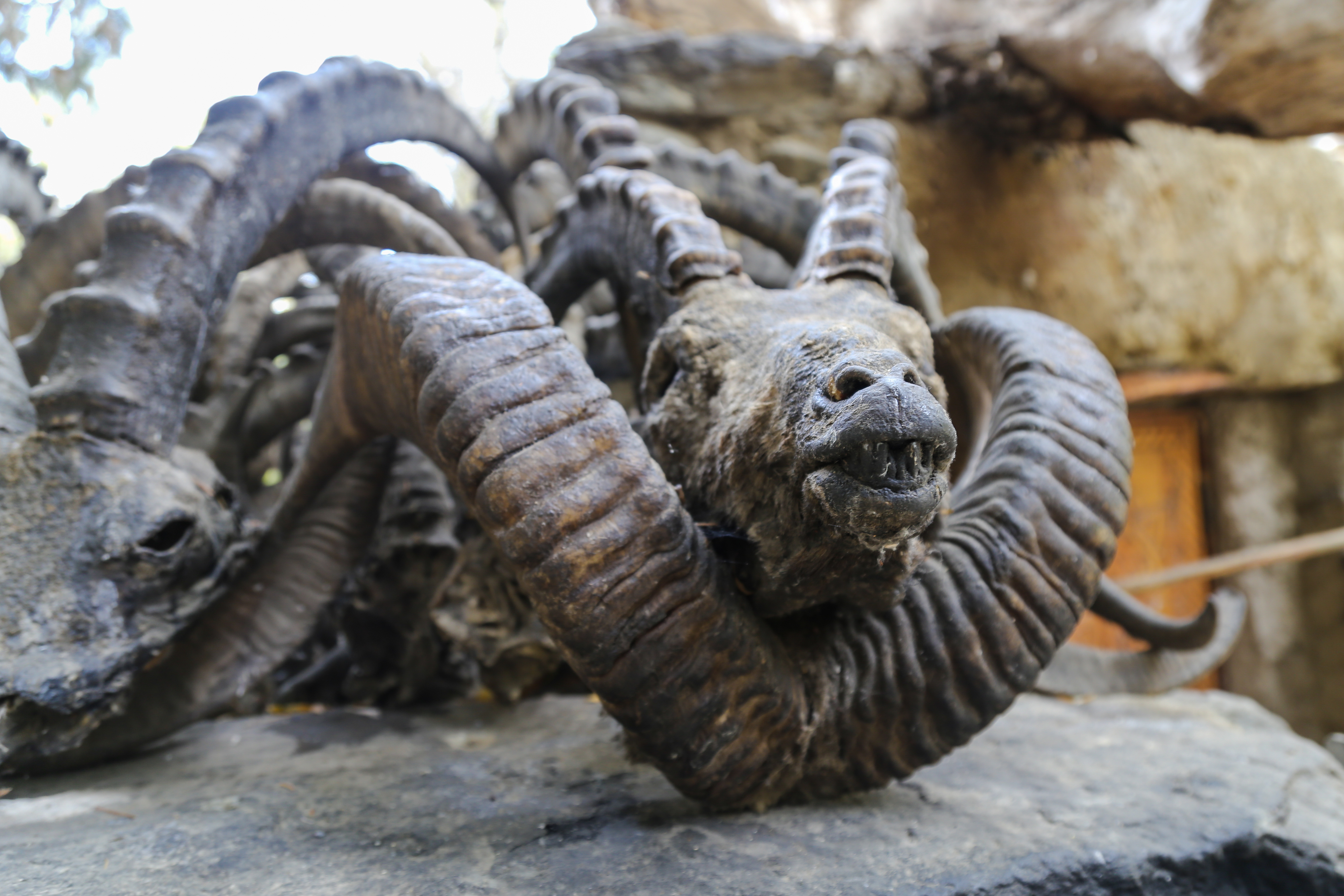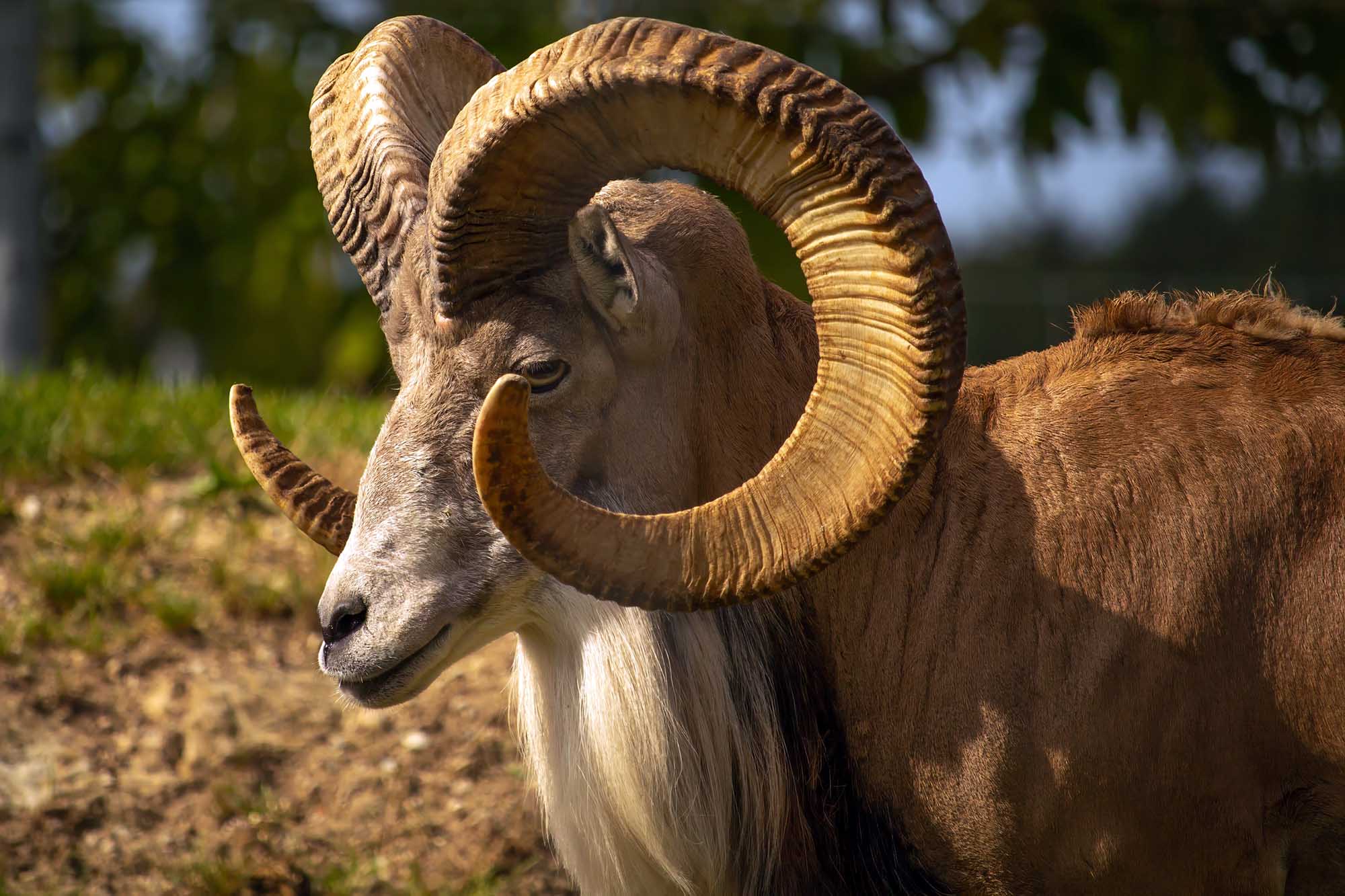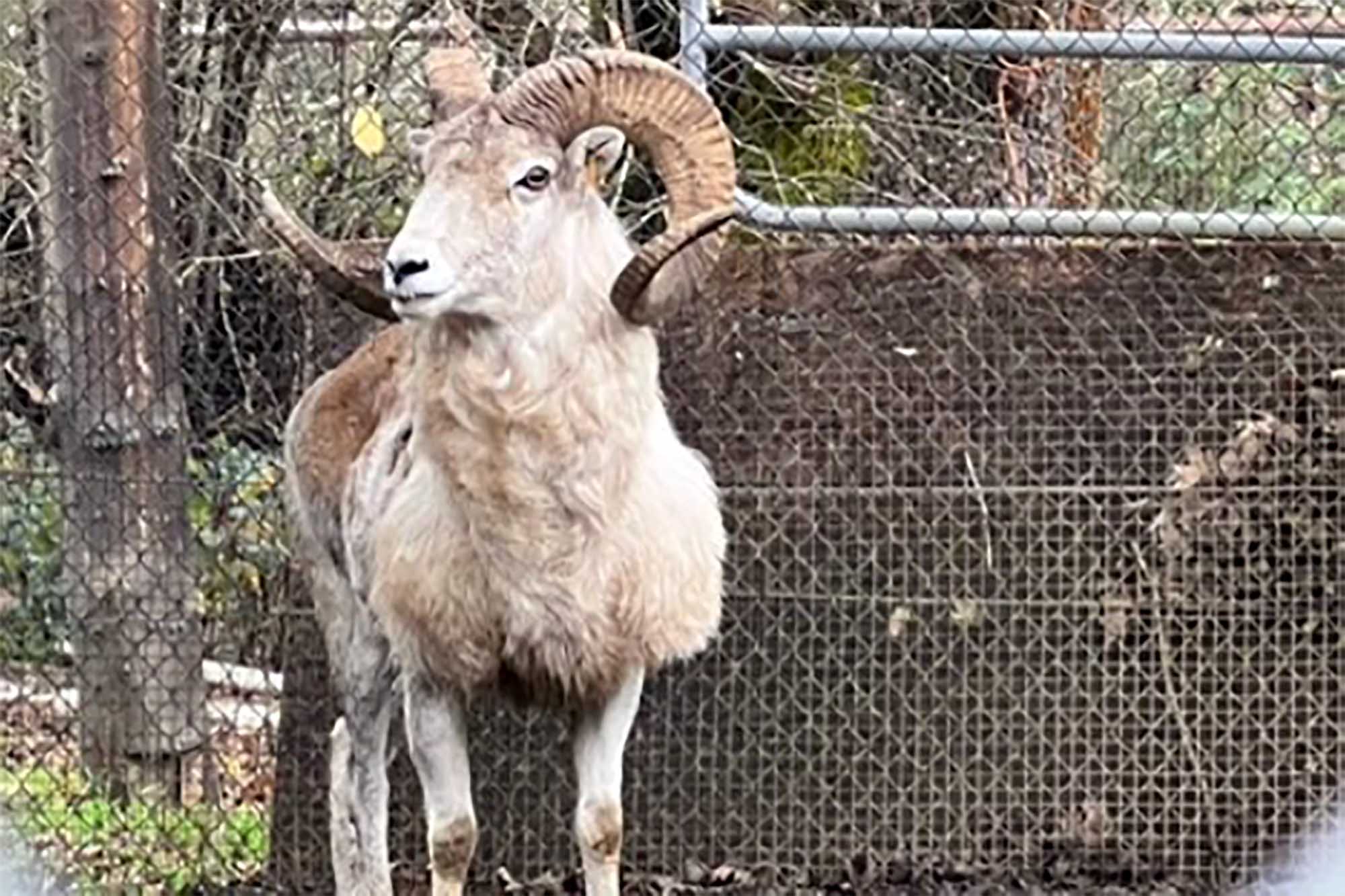A bizarre breeding experiment that began with a Montana ranch owner has ended with a prison sentence — and a warning from federal authorities about the dangers of meddling with nature.
Arthur “Jack” Schubarth, 81, of Vaughn, Montana, was sentenced to 6 months in federal prison this week on two wildlife charges, prosecutors said. Schubarth pled guilty earlier this year to crimes related to his decade-long effort to create giant sheep hybrids and sell them to private hunting facilities.
The charges included a conspiracy to violate the Lacey Act and substantively violating the Lacey Act, which prohibits the trafficking of illegally taken wildlife. For those crimes, Schubarth must also pay a $20,000 fine to the Lacey Act Reward Fund, a $4,000 payment to the National Fish and Wildlife Foundation, and a $200 special assessment.
Schubarth broke state, federal, and even international laws by illegally importing Marco Polo sheep parts from Kyrgyzstan and then using the genetic material in his experiments, federal prosecutors said in a Monday press release.
Perhaps more importantly, by selling his experiments to other breeders — including the semen of his favored clone hybrid — he risked the spread of contagious diseases among animal populations. That can be “devastating,” prosecutors said.
“Such actions to create hybrid animals are as unnatural as they are illegal,” U.S. Attorney Jesse Laslovich for the District of Montana said. “Schubarth’s criminal conduct is not how Montanans treat our wildlife population.”

Creating the ‘Montana Mountain King’
Schubarth’s ranch, a 215-acre property in Vaughn, Mont., specializes in the sale and breeding of “alternative livestock,” such as mountain sheep, mountain goats, and other animals.
But it was Schubarth’s creation of the “Montana Mountain King” sheep hybrid that brought him into the crosshairs of authorities. He began this experiment with Marco Polo sheep, a protected subspecies of argali sheep native to Central Asia.
These large animals can weigh over 300 pounds, with horns up to 5 feet long. They are highly sought after by trophy hunters and are a source of big tourism dollars in Kyrgyzstan.
After illegally importing Marco Polo sheep parts, Schubarth worked with several people to create the hybrid. That began with sending some of the genetic material to a lab, which used it to create 165 embryos. Schubart then successfully implanted embryos into several different species of ewes already on his ranch. That resulted in a clone sheep hybrid he called the “Montana Mountain King,” or MMK.

This “king” sheep became the primary donor for Schubarth’s larger operation. Using forged veterinary documents, he began raising and selling the hybrid sheep across state lines to high-fence hunting operations. The risk of disease was very real, prosecutors said. At least two of Schubarth’s sheep died from Johne’s disease, a contagious, chronic wasting disease that can quickly spread to other animals.
“Indeed, his actions threatened Montana’s native wildlife species for no other reason than he and his co-conspirators wanted to make more money,” attorney Laslovich added.
But Schubarth didn’t just sell the sheep — he also sold the genetic material needed for other breeders to produce them. On occasion, Schubarth sold “MMK” semen directly to sheep breeders in other states, prosecutors said.
The U.S. Fish & Wildlife Service, which also assisted in the investigation, risked “compromising the genetic integrity of our wild sheep populations.”
“This case exemplifies the serious threat that wildlife trafficking poses to our native species and ecosystems,” said Assistant Director Edward Grace of the U.S. Fish and Wildlife Service’s Office of Law Enforcement.







